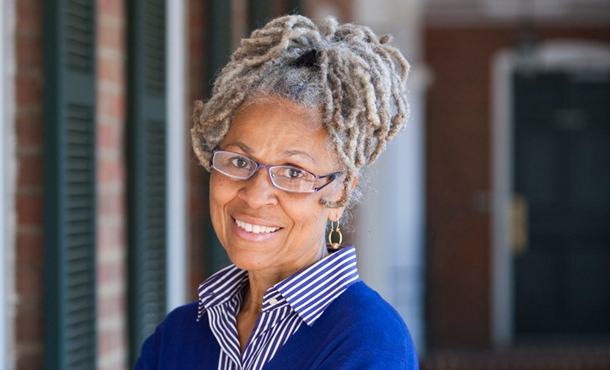Students of Cold War history know of McCarthyism, J. Edgar Hoover, and the Red Scare. But what were the effects of such government repression on African American artists and authors, many of whom challenged the conventional conservative views of race, racism and integration during the 1950s?
Author and cultural historian Mary Helen Washington focuses on this decade of marginalized African American history – filled with Cold War intrigue and repressive government spying, yet an important precursor to the 1960s Civil Rights movement.
Washington visits Eastern Mennonite University Oct. 16 and Oct. 17 to discuss her new book, The Other Blacklist: The African American Literary and Cultural Left of the 1950s (Columbia University Press). The Thursday evening lecture is 7 p.m. in the seminary’s Martin Chapel. Washington will also offer “Reflections on the Journey” Friday at 10 a.m. chapel in Lehman Auditorium.
Washington’s research included extensive investigation of FBI files, first-person interviews, and archival material. The book features six relatively obscure authors and artists from the Black Popular Front, selected to show a range of political influence: novelists Lloyd L. Brown, Frank London Brown and Julian Mayfield; graphic artist Charles White; playwright Alice Childress; and poet and novelist Gwendolyn Brooks.
Since earning her doctorate at the University of Detroit in 1976, Washington has taught at Mills College, University of Massachusetts-Boston, UCLA, Harvard Divinity School, Wellesley College, and St. John College of Cleveland. She now teaches African American literature, film and culture at the College Park campus of the University of Maryland. A past president of the American Studies Association, she has been awarded five honorary doctorates and several prestigious fellowships.
The Other Blacklist is her first book. She is editor of Black-Eyed Susans: Classic Stories by Black Women Writers; Midnight Birds: Stories of Contemporary Black Women Writers; Invented Lives: Narratives of Black Women; and Memory of Kin: Stories of Family by Black Writers.
